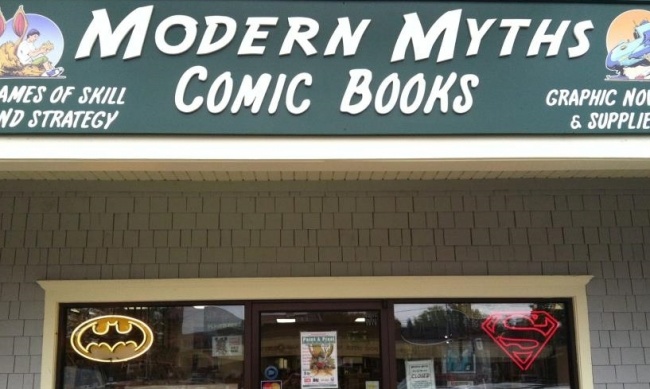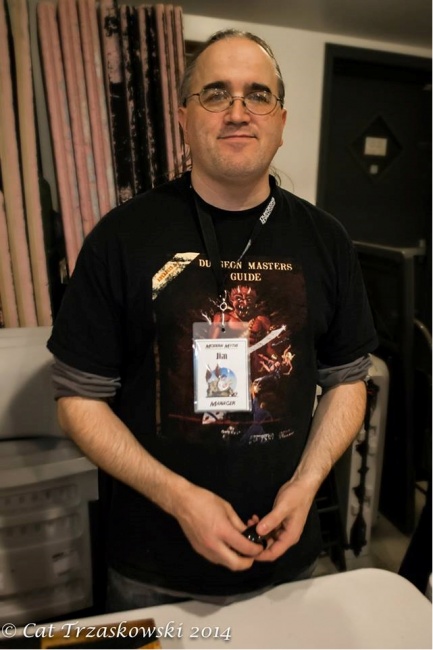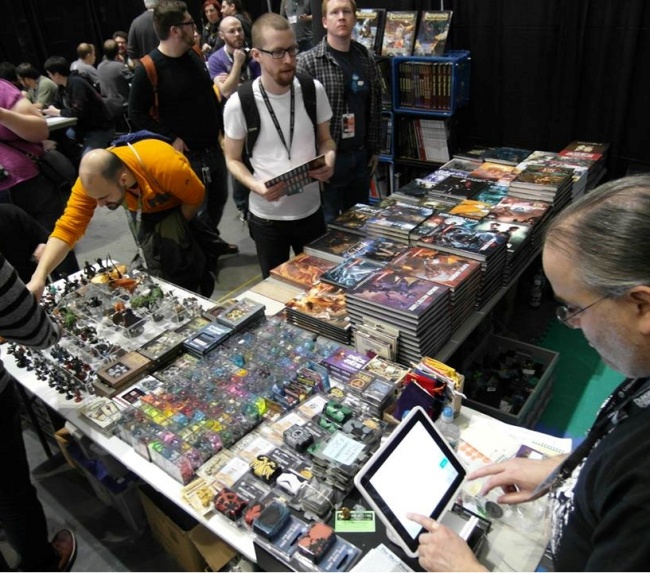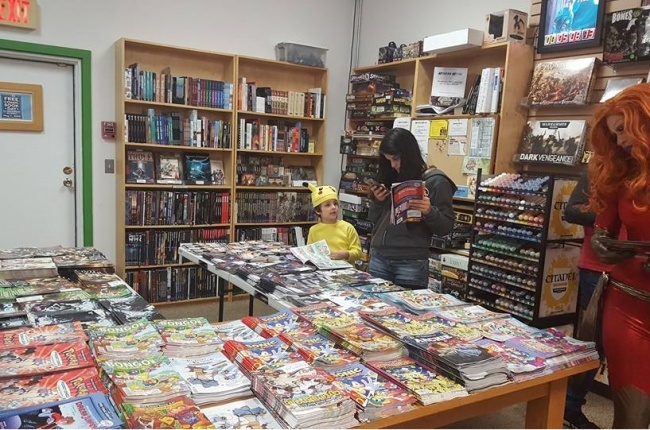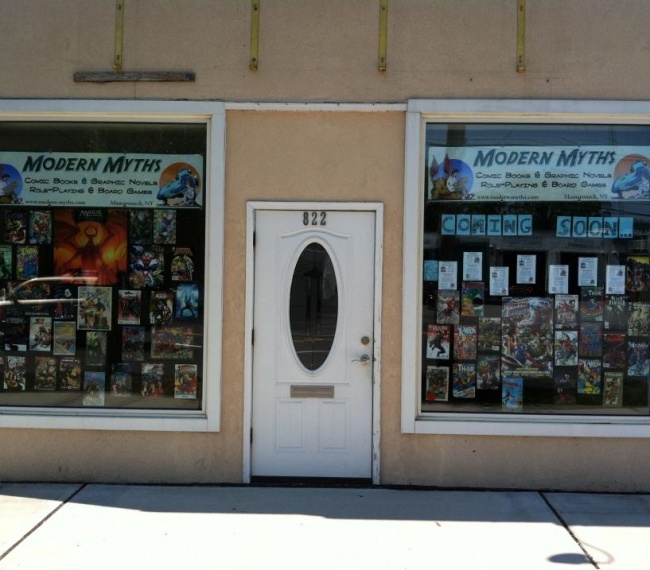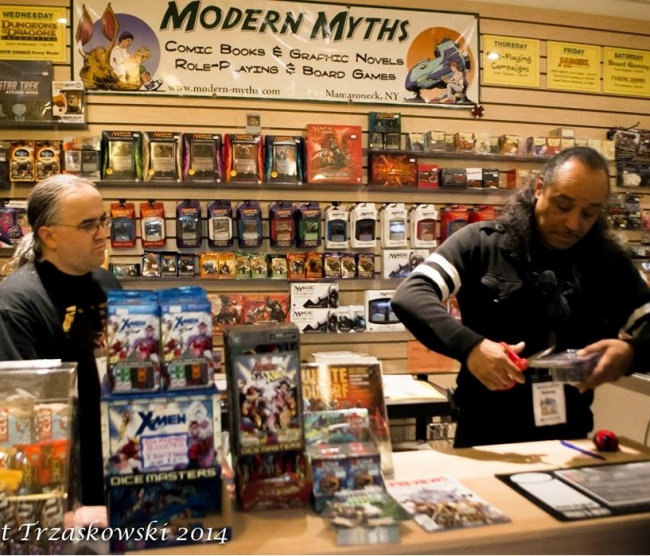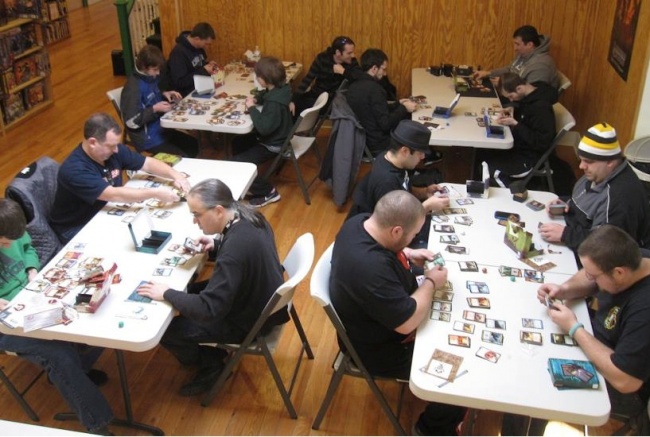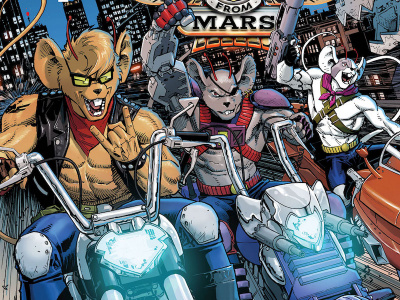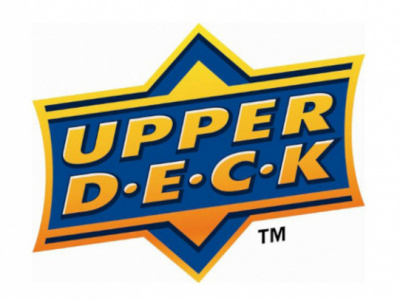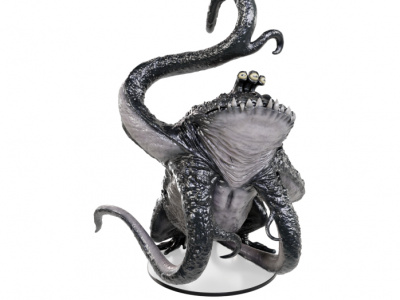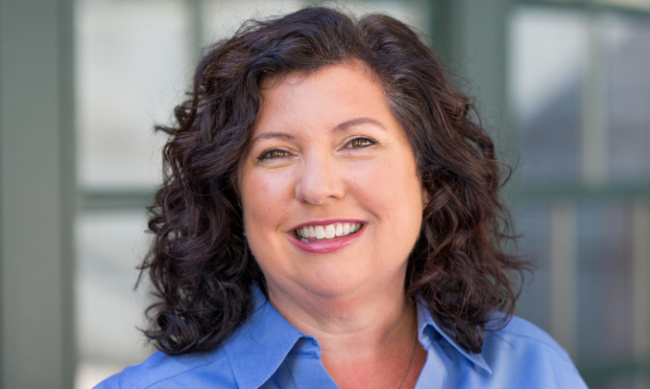Jim Crocker has hit seemingly every whistle stop on the book-selling train.
After a “typical nerd journey of the ’70s and ’80s that included D&D, comics, and all that kind of stuff,” Crocker got a job at a used bookstore that also sold comics while in college. But the theater major pulled down his own curtain.
“I realized that I actually enjoyed retailing more than what I was getting the education for in the first place,” Crocker says.
He finished school and stayed at the used bookstore for a while before working in the mainstream book trade with stints at B. Dalton, Borders, and eventually at the Borders corporate office in Ann Arbor, MI. There, his path took him right back into comics.
“While in Ann Arbor, my wife was going to grad school and she got a job at a comic and game store,” Crocker says. “I got to talking to the guy who owned that store, and he asked me what it would take to get me to come run the shop. I told him to just match my Borders salary, and I wasn’t making all that much there. They paid me that, I moved over, and I’ve been doing this ever since.”
And 14 years ago, Crocker got into business for himself, founding Modern Myths in Northampton, MA. Four years ago, Crocker opened a second store 135 miles away in Mamaroneck, NY when his wife got a job in that neck of the woods.
A variety of experience and some long drives between Massachusetts and New York have taught Jim Crocker a lot about business…
THE GOOD
Work Harder
“The old saying, ‘Don’t work harder; work smarter’ doesn’t always apply to me,” Crocker admits. “Sometimes, it’s just working harder.”
Crocker is a believer in being on the front lines.
“I think everyone who reads this is going to think, ‘Yeah, I guess I could shave a point or two off of my comic costs if I really tighten up on my cycle sheets’ or something like but that, but really, I think we all know, sometimes you just have to roll your sleeves up, and go in and do the work.”
The hours can get long—60 to 70 a week—but they pay off.
“There was a year when I was driving back in forth every week, a week in Mamaroneck and a week in Northampton,” Crocker says. “And sometimes that’s what you have to do. And doing it means ‘We’re still here.’”
Use Your Convention Business
It’s certainly not the solution for every store. But Crocker is a huge believer in the convention game.“It provides a big shot of cash,” he says. “And on the gaming side, we’ve forged relationships with role-playing game authors, organizations such as Indie Press Revolution, and more. It’s really supercharged our role-playing game presence, and that’s what everyone really knows us for.”
Crocker says cons can turn boat-anchor inventory into movers, and allows him to provide a wider line.
“We can now carry really obscure stuff, but make it work because we have the convention business,” he says. “We might only sell 2-3 copies of a really obscure game in the stores, but we can move 20-30 a year at the conventions, doing those shows and putting them in people’s hands. By doing that, we’ve built up to the scale where we now go to PAX and so on. The convention business has really worked out well for us.”
Apply Your Experience
Crocker’s book trade and bookstore experience led him to a slightly different point of view when Modern Myths opened 14 years ago.“We approached the business as an independent bookstore… that happened to sell comics,” Crocker says. “That was a minority viewpoint a few years ago, although many people have moved more in that direction lately.”
Modern Myths started with full POS, just-in-time inventory, and used book trade distributors such as Baker & Taylor in addition to Diamond. Crocker thinks that’s a key in the chain’s success.
“If you walk into our stores, it’s all wood paneling, bookcases, and looks like a bookstore,” he says. “And we’ve never had a year in our Northampton store where we’ve sold more monthly comics than trades. It’s very much a book-driven business. In those first 3 - 4 years, we were doing 2-to-1 books over single issue comics, which was very unusual for the time.”
THE BAD
Don’t Expand Backward
Crocker admits opening the second store was an exercise in pratfall, driven by his wife getting a job offer in New York.“It was like, ‘Well, I gotta move!’” he says. “And we had talked about opening a second store because we were mature and had kind of plateaued.”
But in retrospect, “We did everything backwards,” he laughs. “We started the second store with me, not with new staff as you’re supposed to do so the new store can grow from smaller amounts of income while the existing store provides the larger capital you need to expand. I was very hands-off with a new manager because he brought experience I thought would apply better than it did, and that was the wrong approach as well.”
Today, Crocker says he could do, “a seminar on everything I did and just tell people, ‘You want to expand your business? Just do the opposite of what I did here.’”
The second store eventually righted itself. But Crocker realizes, “It was not a business decision guided by business reasons.”
Don’t Forget Marketing!
Applying your experience is good. Expanding on your experience is better.“Because I’m from that Borders background, all of our marketing and publicity was essentially done for us,” Crocker says. “If you’re managing a Borders, you don’t have to worry about Tweeting stuff or putting it on Facebook—the company does that. And the publishers send you beautiful displays you put together and put the books in. And maybe because of that, I have never got the hang of self-promotion.”
Crocker is getting better, by slow and painful steps. His staff prods him along.
“It’s still a chore for me,” he says. “People have to harass me to remember to take pictures and put them on Facebook.
Nail Your Property
That New York expansion? Yeah, not the best property either.
“As happy as I am with my staff at the New York location, we really should have spent the time looking for a better location,” Crocker says. “At the time we opened four years ago, most property owners were still very optimistic about what they could get for rent, and it can be tough to find someone to rent to you if you’re not a Verizon store or Starbucks or whatever.”
Crocker says the Mamaroneck location is “an interesting, quirky space that people really seem to like, but I wish I would have been more tenacious in finding the perfect place. Because that’s one of the things that once you’re there, you kind of have to live with it. It would have been nice if we had some better parking.”
AND WHAT ELSE?
“Very few of us go to business school to do this [operate a comic/game store]. But any big business experience you have in any field can help. I think my Borders experience has been invaluable to me.”“It’s a cliché to say that I’m 47 and really don’t understand social media and promotion all too well. But I’m getting better, slowly. It’s an area where I still fall down. I rely on the staff, but I’m getting better.”
“Our website is, admittedly, about 10 years out of date. But when I think about a couple thousand dollars to revamp it, I also think, ‘How many boxes of Magic could I buy with that?’ The opportunity cost argument is rough.”
“I find that everyone who owns a comic store does ‘comics and something.’ There’s nobody that just sells comics. We’re comics and games. And just because the hobby games are very important to us doesn’t mean that we aren’t a full-line, no-kidding comic store as well. We care about comics as a product line, very intensely.”
“For all the flack that everyone gives Diamond, I think they absolutely recognize that we are in a symbiotic relationship. I think everybody is better served if they don’t think of Diamond as having a monopoly, but essentially think of themselves as a franchise of Diamond. We’re like franchises with an unbelievable amount of freedom that any other franchisee wouldn’t otherwise have. And there’s a reason DC, Marvel, Image, and Dark Horse all say, ‘Yeah, this is who you should buy our comics from.’ Those publishers have very clearly gone all in with Diamond. I sleep a lot better at night when I think of Diamond’s revenue as being a function of a percentage of our sales, and I think their upper management knows that as well. A lot goes right. It’s frustrating when you get a box of smashed comics, but for the most part, we remember the misses and not the hits. Their batting average is very good. This attitude gets me in a lot of trouble with my peers, but I made my peace with Diamond long ago.”



